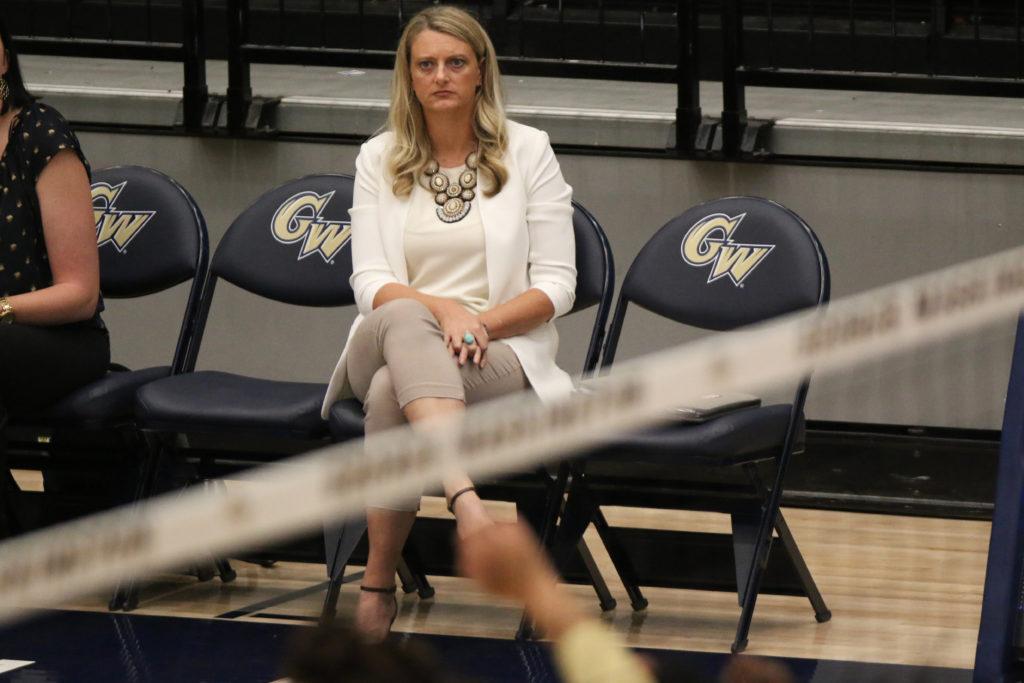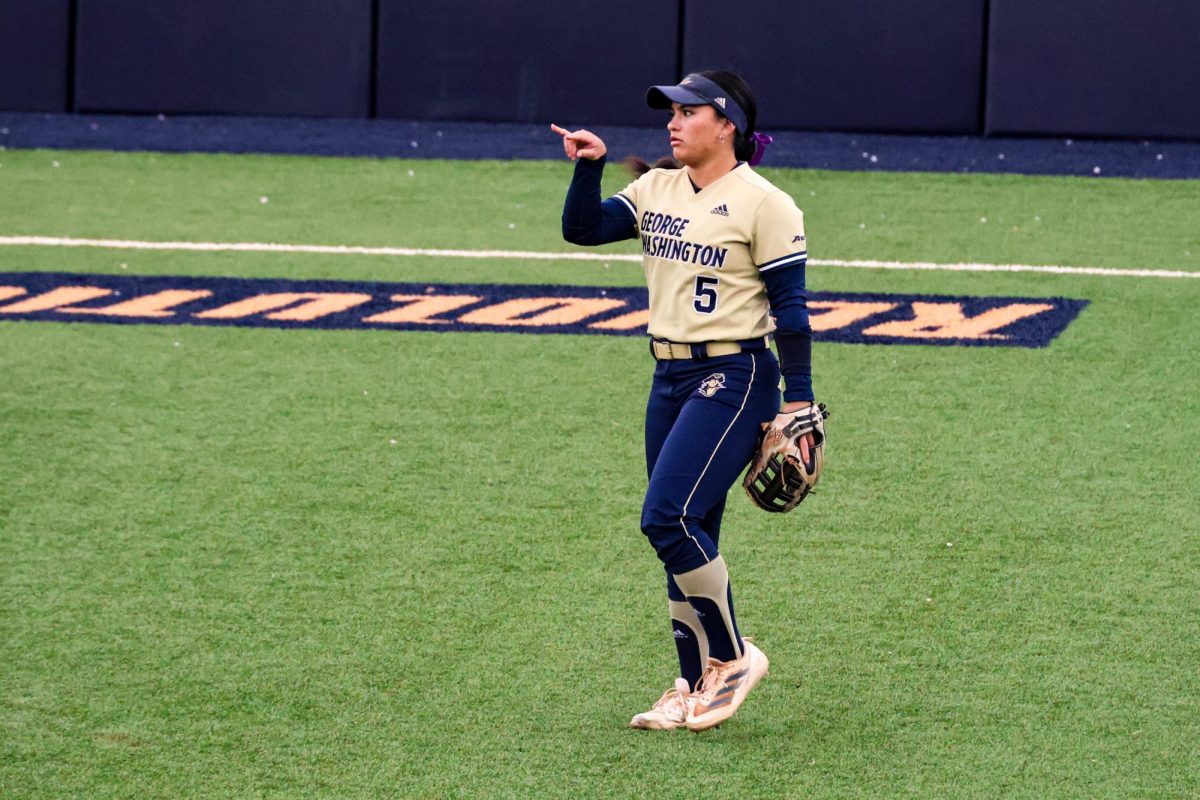When Sarah Bernson graduated from Saint Mary’s California with a degree in English and art, she did not anticipate stepping on the sidelines as a volleyball coach. But this year, she’s wrapping up her third season at the helm.
As a student-athlete, she sustained multiple knee injuries, and the last injury ended her college career. She rehabbed herself back into playing form and practiced locally in California before community members urged her to help out with coaching at a local university.
She took the opportunity, joining Cal State Monterey Bay as an assistant coach and helping the program transition from the National Association of Intercollegiate Athletics into NCAA Division II. She said her experience reignited her love for the team camaraderie, and her time on the sidelines in college prepared her to lead a program.
“I believe that being injured and watching from the sidelines started my evaluation skills,” Bernson said in an email. “The athletes on that first collegiate team taught me the joy of giving time and mentoring athletes.”
Bernson underwent four knee surgeries throughout her college career, a feat she said “challenged her self-identity” as a student-athlete because it kept her off the court. To handle the injuries, she said she visited her school’s mental health resources and joined an injury support group for athletes to refocus “on the positive rather than what was limiting.”
“That skill has been invaluable to me in the everyday tasks of a coach as well as when a major situation arises,” Bernson said. “The GW squad hears me saying ‘restate that in a positive way’ very frequently.”
After bursting onto the coaching scene with Cal State Monterey Bay, Bernson moved to Cornell, and then onto American.
While in D.C., Bernson said she connected with Daniel Davidson, a friend of hers and a former volunteer assistant at GW to participate in the Premier Volleyball League, a new professional U.S. volleyball league. Bernson served as the head coach of the Rising Tide, training former collegiate players from around the country until the league folded in 2017.
She took over GW’s program in 2017 and has led the team to two Atlantic 10 tournament appearances. Under her leadership, the squad tabbed a 37-50 overall record.
As a female head coach, she said she has faced issues like “perceived leadership” and adjective switches. She said perceived leadership occurs when a male assistant coach is assumed to be the head coach over a female.
She added that adjective switches happen when a male and female coach act in a similar way but are labeled differently. Bernson said a male coach could be described as intense, but a female coach could be coded as a yeller.
Bernson said she tries to stay in tune with the greater volleyball and sports communities to increase female representation. She is involved in the American Volleyball Coaches Association and WeCoach, an organization that is dedicated to the “recruitment, advancement and retention of women coaches of all sports and levels,” according to its website.
With the AVCA, Bernson mentors coaches across Division II or Division III volleyball, learning about their programs and coaching experiences and sharing her experiences at GW. She said the pairing lasts a year, but the conversation between the two carries on for longer.
“Being an active part of the female coaching profession is impactful and I am grateful to have multiple monthly scheduled phone calls or meet-ups with other female coaches to support one another,” she added.
Bernson said the representation of women and people of color at GW and in college athletics provides student-athletes with role models and leaders like them.
“With a team of females and with athletes of color, they should see and know leaders that are accessible and relatable,” Bernson said. “Our athletic department, under Tanya Vogel’s vision, includes a strong group of female coaches. This is one of the reasons I love working here. I am part of a driven and competitive group of female peers.”








